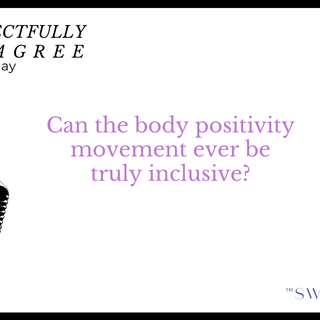In a new study, teachers judged essays by overweight children and healthy-weight children to be of the same quality — but assigned lower marks to the overweight children. The teachers also assumed the overweight children “put forth more effort, needed more remedial assistance, and had lower overall grades in school,” than their slimmer peers, concluded the authors.
It’s a small study — it only involved 133 middle- and high-school teachers in the U.S. — but it speaks to the depths of society’s fatphobia; other research has already found overweight and obese people face bias, bullying and/or discrimination in the hiring process and at the workplace, from the media, from peers, friends, and family, and even from health care providers. Other research has found implicit weight bias in children aged 9 to 11 — perhaps picked up from role models like teachers, parents, and doctors — is as common as implicit racial bias is among adults. Still other research suggests this attitude can be instilled as early as age 3.
“Obesity has been called the last socially acceptable form of prejudice, and persons with obesity are considered acceptable targets of stigma,” wrote Dr. Scott Kahan, medical director of STOP Obesity Alliance, for HuffPost in 2015.
Related on The Swaddle:
All The Arguments You Need: to Convince People Being Fat Isn’t Necessarily Unhealthy
Sadly, decades of research into racial prejudice suggests when bias comes from the very people whose job it is to mentor young minds, student performance actually does suffer — and not merely in the eyes of biased teachers. Studies of black and white students in the U.S. have determined navigating a prejudiced world leads to a physiological state of toxic stress that contributes to racial achievement gaps. In response, some black children find coping mechanisms that can also impair academic success, such as disengaging from schoolwork and devaluing school success.
While racial bias and inequity is its own beast, the effects of a deck stacked high against children, over an inherent physical aspect they can’t control, are likely similar. Like racism, weight stigma has been proven to damage the self-esteem of overweight children all over the world, which can feed dangerous stereotypes — perhaps leading to actual extra effort, as teachers in the newest study assumed — and actually lower performance.
While most of the research cited has been carried out in the West, there’s little reason to believe cultural attitudes toward excess weight differ much here; if anything the effects may be exacerbated or at least more obvious in a society that views an individual’s weight with collective ownership. “In India, weight-related observations tend to be openly shared in a matter-of-fact manner. While it’s possible the comments are well-intentioned – at the very least they are … common and socially acceptable, like small talk on weather fluctuation – their impact can resonate much deeper…” Shahi Dalal wrote for The Swaddle in a 2017 exploration of cultural risk factors for disordered eating.




